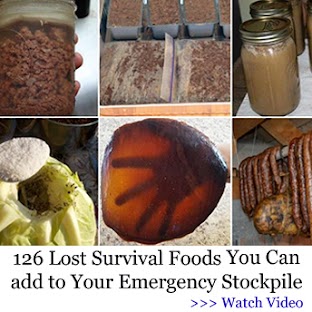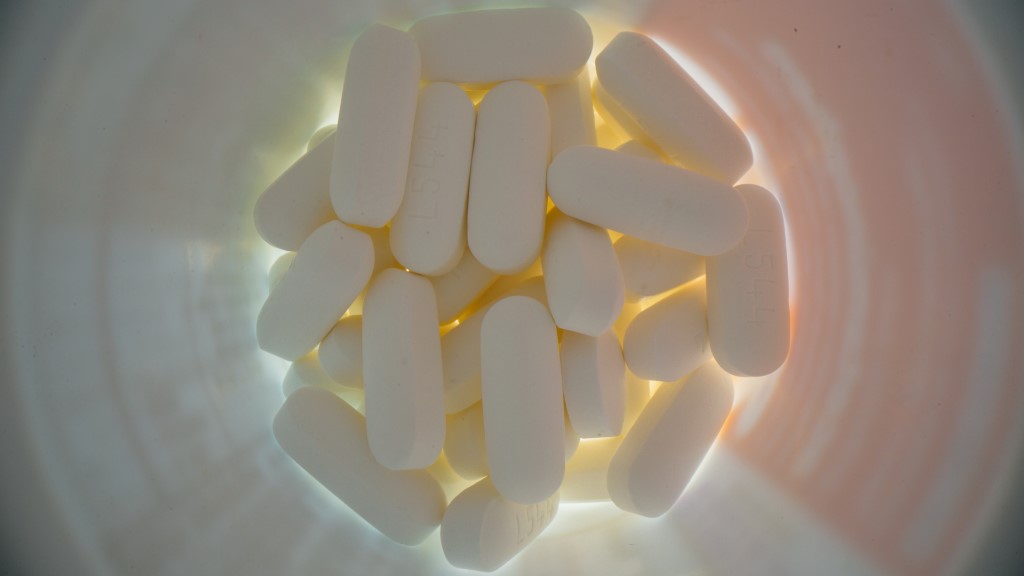Being a prepper requires emergency preparedness. Hence, information on antibiotics is vital as it could save your life in the nick of time.
Quite often, preppers turn a blind eye to survival antibiotics.
Because they lack information on what to stockpile or where to get these antibiotics, they simply don’t act.
And some have never encountered a real need for them. They don’t realize how important they will be in the days ahead.
These were the main reason why I hadn’t stocked up.
Sure, you may have herbal medicines and natural antibiotics stocked up, it’d also good to have regular antibiotics as well since natural ones could take longer to work or may not be strong enough if the infection is bad enough.
I hadn’t realized how important antibiotics were until I ended up in the emergency room one morning.
As you can imagine, That got me thinking seriously….
A Normal Evening
One evening last year, just after having my dinner, my tooth began to trouble me.
At first it was a dull pain. I figured I had some food pushed into my gum line so I didn’t think much of it at first. By night time it was starting to throb so I brushed my teeth and flossed with no results.
I took a tylenol, but there was no change. Finally, before I went to bed, I took some ibuprofen. After about 30 minutes the pain had subsided enough for me to fall asleep.
The following day, the pain hadn’t gone; in fact, it came back stronger. As the day unfolded, the pain increased and continued to get worse throughout the day.
Eventually the pain had worsened so much that I got a mirror and started looking around my gums. I didn’t see anything unusual. I felt around the tooth with my finger and tongue but didn’t feel anything strange.
By that evening, the pain was so excruciating that I couldn’t stand it. It felt like that whole side of my head was pounding and that tooth was throbbing.
So I took the maximum amount of ibuprofen you can and it didn’t help much, and stuck a heating pad on my cheek. Bad…bad idea!
The next morning, the left side of my face was swollen up through my cheek to the point that I couldn’t open my eye all the way.
My wife rushed me to the emergency room.
What the Medics Had to Say
After sitting there in unbearable pain for 3 hours I finally got a bed. By this point my face was so swollen I was having some trouble breathing.
They gave me a shot of some kind, and hooked me up to an antibiotic drip and an IV bag.
For the next three hours I was out of it and barely knew where I was. I could hardly breath or swallow. I felt like I had a bowling ball crushing my face.
Hope at Last
After a few hours I came around. The swelling was down but I still looked like someone beat me up.
I had an abscessed tooth that burst into my sinus and had infected my entire sinus. The heating pad I used to sooth my pain gave the bacteria a perfect environment to grow in and they took off like a wild fire.
If I would have waiting another day to get help my throat would have swollen shut or I would have became septic.
Antibiotics saved my life.
At the same time, I questioned some things: What would have happened if I could not get medical attention?
This made me realize how critical it is to stock up on antibiotics!
Disclaimer
Before we proceed, here are some disclaimers: I am not a doctor and so, what I am presenting to you is not medical advice.
I am sharing what I learned. Consult your doctor before doing anything. I’m not responsible for what you do with this info. And note that some people are allergic to some kinds of antibiotics. Seek trained medical help before treating yourself or others.
Again, and kindly take note of this one, antibiotics should not be taken any time you are in pain or have a fever. They are not good for just anyone and that is the reason they should only be meant for emergencies.
Additionally, you should get some professional training and keep a medical book handy.
It is impossible to tell you all you must know in a single post. Please seek professional training and buy a few books on antibiotics first. Find books that list specifics on the type of antibiotic to use as well as their prescribed doses.
I only hope this post will jump start you into action, don’t take it as medical advice.
Be Warned
If you take antibiotics and react in any way, such as developing rashes, bumps in your mouth, have trouble breathing, etc., stop taking them immediately.
Most antibiotics should be taken for two weeks, don’t miss your recommended dose even when you feel ok. Even if you feel better before the two weeks are over, you must finish taking them.
You will find many antibiotics in the market but I have zeroed in on the 9 that I consider the best. They deal with nearly 99% of infections.
9 Best Survival Antibiotics
You don’t need every antibiotic on this list. Two or three will treat nearly everything. They’re listed here because you might find it difficult to get one but can find another.
1. Ciprofloxacin – Excellent for infections like prostate infections, urinary tract infections, respiratory tract infections (like bronchitis or pneumonia), anthrax, bacterial diarrhea, and diverticulitis or infectious colitis (when taken with Metronidazole). Children, pregnant women and nursing mothers should never use it.
2. Metronidazole – Used to get rid of anaerobic bacteria, like those found in the intestine. It can treat colitis or diverticulitis if taken with Ciprofloxacin. Also good for bacterial vaginosis, joint or bone infections, diabetic foot ulcer, meningitis, and lung or brain abscesses. Again, pregnant women, nursing mothers and children are not allowed to take it.
3. Cephalexin – Used for nearly any kind of respiratory infection (like bronchitis, strep throat, pneumonia) and middle ear infections. It can safely be taken by pregnant women and children. It only has a few side effects.
4. Amoxicillin – By far the most prescribed antibiotic on the planet. A blanket drug that treats the majority of infections. It’s equally safe for children and pregnant women and its side effects are very few. But, some people are extremely allergic to it (I am!). If this is the case, you should never take it as you will likely die.
5. Erythromycin – Treats most respiratory infections and middle ear infections. It’s also recommended for Lyme Disease, Syphillis and Chlamydia. Additionally, it’s safe for use even with women and children. I can cause several side effects including abdominal pain, vomiting, nausea and diarrhea.
6. Doxycycline – Handles similar types of infections as Erythromycin, but it can also as well treat sinus infections, Malaria and Typhus. It should not be taken by children, pregnant women and nursing mothers. It can cause certain side effects such as sensitive skin or kidney failure.
7. SMZ-TMP – Stands for Sulfamethoxazole and Trimethoprim. Both of them can treat the majority of respiratory infections, and they’re used for urinary tract infections. The best thing about SMZ-TMP is it might be able to treat MRSA.
8. Azitrhomycin – Treats respiratory infections and all types of infections like Chlamydia, PID, Lyme Disease, Typhoid and Syphilis. Side effects include nausea, abdominal pain and diarrhea. It’s an excellent antibiotic to keep as it treats many different things, unfortunately it’s difficult to find and expensive.
9. Ampicillin – The same as penicillin, but treats infections like anthrax better. Unlikely to cause an allergic reaction. Good for respiratory tract infections, urinary tract infections, bacterial meningitis, gastrointestinal infections and many other things.
Storage
You can store most of these on a shelf, but put them in a refrigerator to prolong their shelf life. Never freeze them since this can change their chemical composition and render them useless.
Most antibiotics will outlast their expiration dates if stored properly but some, such as Tetracyclines (included is doxycycline), turns toxic as it ages. Seek proper training before storing any medicine past its expiration date.
Final Thoughts
You can avoid life-threatening infections by stockpiling antibiotics. But if you don’t what you’re doing you can make matters much worse or flat out kill yourself.
Antibiotics are not expensive or that hard to find, so seek out proper training and (legally) stash them up for SHTF.
And remember herbal medicines may not be strong enough for the type of infection you have going on.






